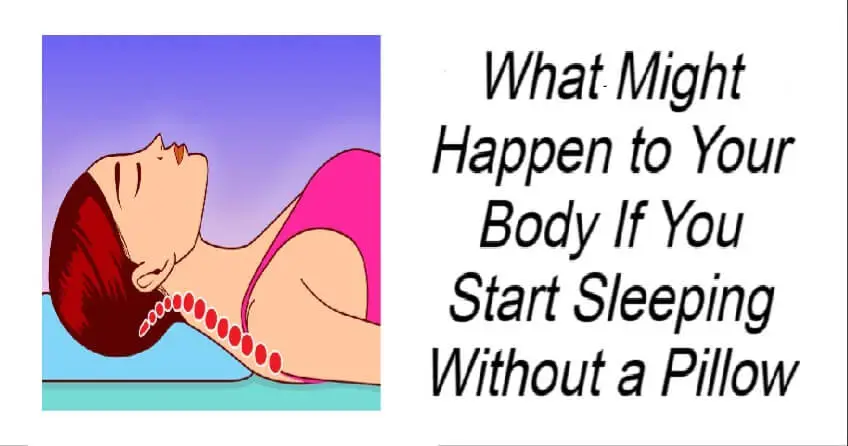What Might Happen to Your Body If You Start Sleeping Without a Pillow
The first known pillows date back to Ancient Mesopotamia, where they were made of stone and reserved for the wealthy. Unlike those hard stone pillows, the ones we use today are soft and fluffy, and many people find it hard to sleep without their favorite cozy pillow. However, sleeping with a pillow may not always be the best choice for your body and overall health.
We understand that parting with your favorite pillow might be difficult, but sleeping without one offers several health benefits. We’ve done the research to bring you the key advantages.
1. It Prevents Back Pain
Sleeping without a pillow can help reduce back pain. Many pillows contribute to unnatural sleeping positions, and the support they provide doesn’t last long. While the pillow itself doesn’t directly cause back pain, it can aggravate existing discomfort. Sleeping without a pillow allows your spine to rest in its natural alignment, promoting better posture and reducing strain.
2. It Helps Relieve Neck Pain
Many pillows don’t offer the proper support for your neck, leading to discomfort or worsening neck pain. Bending your neck in an unnatural position for long periods, especially with pillows that are too firm or too soft, can contribute to tension and soreness. Sleeping without a pillow can help your neck remain in a neutral position, reducing stress on your muscles.
3. It Combats Headaches
If you wake up with headaches or feel light-headed, your pillow might be the culprit. High pillows or those that cause your head to tilt forward can add pressure to the neck muscles, leading to tension headaches. By forgoing the pillow, you may find relief from morning headaches and improve your overall comfort while sleeping.
4. It Alleviates Stress
An uncomfortable pillow can disrupt your sleep, leading to tossing and turning throughout the night. Frequent sleep disturbances mean your body has less time to undergo important restorative functions. Sleep deprivation can negatively affect your mood, cognitive function, and increase the production of stress hormones during the day. Sleeping without a pillow might help reduce these disruptions and promote more restful sleep.
5. It Prevents Facial Acne
Your pillowcase might be contributing to skin issues, especially if it isn’t washed regularly. Throughout the night, your face presses against the pillow, collecting oils, dirt, and dust. These particles can lead to breakouts, irritation, and premature wrinkles. Sleeping without a pillow can minimize this contact and allow your skin to stay cleaner.
6. It May Be Beneficial for Your Hair
If you wake up with dry, tangled hair, your pillow might be to blame. As you toss and turn, your hair rubs against the pillowcase, which can cause breakage. Pillowcases can also absorb oils from your hair, leaving it dry and brittle. Sleeping without a pillow might help reduce this friction and keep your hair healthier.
Disclaimer: This article is for informational purposes only. For professional advice and diagnosis, please consult your doctor.
You’ve just read, Sleeping Without a Pillow . Why not read Lady Accidentally Farts In A Car Showroom.

